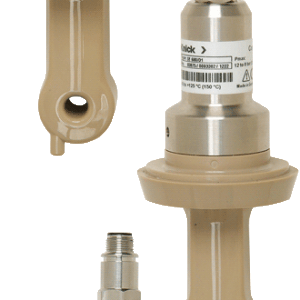Selecting the right conductivity sensors for CIP application not only minimizes production downtime but it enhances the safety and quality of the end product.
Industrial processes in industries such as dairy, brewery, food and beverage, pharmaceutical and chemical manufacturing involves the use of process piping and vessels that needs periodic cleaning after each batch production. This cleaning process maintains the highest product quality and prevents bacterial growth and contamination. This is known as CIP(clean-in-place) – that basically removes residues from previous batch and sanitizes the process pipes or storage tanks.
Depending upon the product, this process uses sanitizers and cleaning chemicals such as caustic soda, acid solutions or steaming to kill microorganisms. An accurate concentration of such cleaning agents in water is required for an efficient CIP Systems. Since the various cleaning solutions used are more conductive than the water used for flushing and final rinsing, conductivity measurement is widely used to monitor the various cleaning steps and the final rinse. Conductivity is also used to monitor the strength of the cleaning solutions to indicate the need for replenishment. Multiple fluids flow through the CIP process in a specific order and time frame, and rely on precise Conductivity Sensors for CIP application that monitors and controls the efficiency of the cleaning process.
One of the major requirements when selecting the Conductivity Sensors for CIP application is their sanitary design. This means that the surface of a sensor should be such that it does not allow the residue from the product to trap which could then decay or harbor microorganisms. Conductivity sensors used in hygienic applications not only have to withstand regular CIP (Cleaning in Place) and SIP (Sterilization in Place) processes but also strong temperature differences as processes where pure steam sterilisation is used, the sensors are heated during SIP process from ambient temperature to process temperature.
Alvi technologies offers a solution for this application – The use of hygienic, toroidal conductivity sensor SE 680 with Memosens protocol. Due to its design without any seals, joints and gaps as well as a dirt-repellent surface made of FDA-approved Virgin PEEK, the compact SE 680 is highly durable. The inductive technology isn’t influenced by the polarization and doesn’t require sensor surfaces that may be subject to corrosion. The SE 680 sensor with an extremely wide measuring range of 0 to 2000 mS/cm at a resolution of 2 μS/cm effectively monitors the entire cleaning . This sensors boast of being extremely robust against frequent, extreme temperature changes ; where conventional conductivity sensors won’t withstand .
For further information, please download our datasheet.

